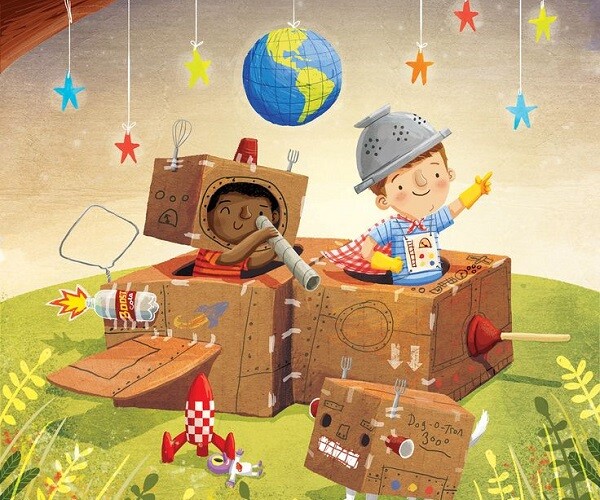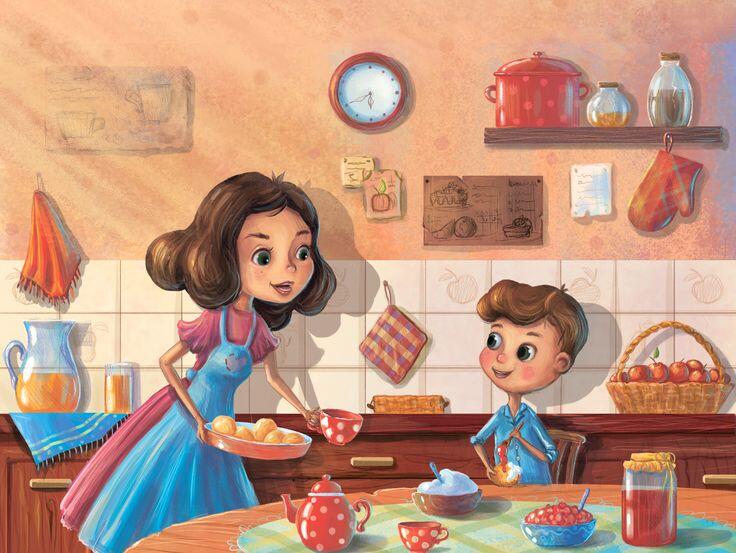It’s interesting to note that some families with average financial means are able to raise exceptional children. Here are four types of families that often succeed in this regard:


Harmonious Families
A family is a child’s sanctuary as they grow up. The relationship between family members greatly influences a child’s personality and perception. A warm and loving family provides a strong foundation for psychological and emotional development, while a stressful and conflict-ridden environment can leave lasting mental scars.
Most of us who witnessed parental arguments or conflicts as children tend to be more cautious and less vocal at home. These arguments make children feel insecure and develop negative, anxious thoughts about stability and social relationships.
Consequently, if parents frequently argue, their children may become timid, insecure, and even develop psychological issues such as anxiety or depression.
When parents have a stable relationship, they have the patience to guide their children, creating a harmonious family atmosphere. In a happy family, children feel safe to express their emotions and explore their identities.
Children raised in such an environment are encouraged to express their opinions, building self-confidence and communication skills.
As these children grow up, they find it easier to connect with others, enjoy life, and appreciate its precious moments.


Families with Shared Responsibilities
Each family member has a role to play. The father typically provides shelter and protection, serving as a strong and reliable figure. Meanwhile, the mother embodies gentleness, virtue, and care, creating a warm and nurturing environment.
This harmonious dynamic establishes a stable family environment and imparts important values to children.
However, some children grow up without a sense of responsibility, becoming timid and reluctant to face challenges. This is often because they learned this behavior from their parents when they were young.

If children observe their parents shirking responsibilities or avoiding difficult situations, they may come to view such behavior as acceptable.
While life can be busy with work and social obligations, it’s crucial for parents to prioritize building strong relationships with their children. Simple moments like sharing a meal, going for a walk, or reading a bedtime story can create cherished memories and make children feel loved and secure.

Families that Respect Each Other
As children grow up, they develop their own thoughts and opinions. Parents should respect their children’s freedom and provide them with the necessary space to express themselves. Similarly, children should also respect their parents.
Spouses should also respect each other—the father should understand the mother’s struggles in raising a family, and the mother should appreciate the father’s hard work. This mutual respect should extend to teaching children how to respect others.
When making important family decisions, parents can include their children in the discussion. This makes children feel like valued members of the family and helps them develop independence.
In daily life, children who learn to be humble, polite, and respectful towards others are more likely to exhibit positive traits and achieve success.


Families with Discipline
Children need to learn rules and face appropriate consequences from an early age. However, parents should be reasonable and flexible in setting these rules to ensure a safe environment for their children.
It’s important for parents to lead by example. When children see their parents following the rules, they are more likely to do the same without constant reminders.
A child’s development is closely tied to the family’s discipline. By setting a good example, parents teach their children about rules and principles, helping them form good habits, develop critical thinking skills, and become self-disciplined.

When children are taught the importance of rules and personal responsibility from an early age, they develop positive qualities and are better equipped to face life’s challenges.
A stable and loving family environment provides children with a sense of security and warmth, fostering emotional well-being. Harmony in the family encourages children to express themselves, build communication skills, and resolve conflicts effectively.
The 4 Creative Ways to Discipline Your Child That Are 100 Times More Effective Than Scolding
The art of reprimanding your child is an age-old dilemma for parents. This introduction paragraph aims to present a unique and effective approach to disciplining your child, one that is 100 times more effective than traditional scolding methods. Presenting four innovative strategies that will revolutionize how you address your child’s misbehavior and foster a more positive and respectful relationship.






































